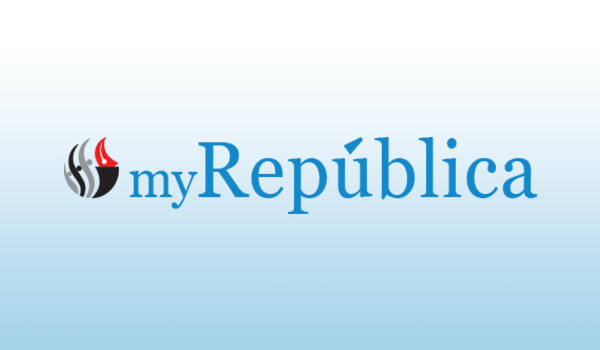
KATHMANDU, October 8: Green Climate Fund (GCF) has approved a fund of Rs 6 billion to Alternative Energy Promotion Centre (AEPC) for the proposal on Mitigating GHG emission through modern, efficient and climate friendly lean cooking solutions (CCS).
This will help promotion of clean cooking solutions by modernization, efficient and climate friendly cooking energy (clean cooking solution) to reduce emission of green house gas as well. The 30th GCF Board Meeting held on October 6, 2021 had approved the AEPC proposal.
Clean cooking solution is the instrument which can create a healthy cooking area as women and children mostly get involved in kitchen area get suffered of diseases caused by smoke. Besides health benefits clean cook solutions support drudgery reduction, reduce deforestation, reduce consumption of imported fossil-fuel i.e. LPG.
Although reports on achievements are said to be satisfactory, the campaign for clean cooking solutions need to be intensified so as all households must get solution for the better health, better living and reinstate better environment.
In Nepal, there are more than 75% of households still use solid biomass mainly fuel wood and animal dung for cooking in traditional cookstoves. There are institutions like hotels, restaurants, schools, barracks and religious establishments where biomass is the main source of cooking fuel.
The Green Climate Fund (GCF) is an important product of COP15. It is a critical element of the historic Paris Agreement which is the world’s largest climate fund, mandated to support developing countries raise and realize their Nationally Determined Contributions (NDC) ambitions towards low-emissions, climate-resilient pathways.
The argument admits that there is a shrinking window of opportunity to address the climate crisis. Average global temperature is currently estimated to be 1.1°C above pre-industrial times. Based on existing trends, the world could cross the 1.5°C threshold within the next two decades and 2°C threshold early during the second half of the century. Limiting global warming to 1.5°C is still narrowly possible and will be determined by the investment decisions we make over the next decade.
Alternative Energy Promotion Centre (AEPC) is a nodal institution of Government of Nepal established with objective to popularize and promote the use of renewable energy technologies in the country to raise the living standard of the rural people, to protect environment and to develop commercially viable alternative energy industries in the country.
Dissemination of Improved Cooking Stoves (ICS) is one of the major activities of AEPC since 1999, supported by the Government of Nepal and various external development partners. AEPC is an accredited entity for Green Climate Fund. The total amount approved for the project is USD 49.15 million which is NRs. 5.89 billion which will be utilized for 5 years in 22 districts of Tarai covering 150 municipalities and rural municipalities.
The project will benefit 1 million households with half a million electric cooking devices, 490,000 tier-3 improved cook stoves and 10,000 biogas plants as facilities as clean cooking solutions. Out of the total amount involved USD 21.12 million (NRs. 2.53 billion) will be GCF and USD 28 million will be cost sharing between AEPC and Local Governments. Financial support as subsidy to be provided by AEPC will be USD 21 million and Local Governments will spend USD 7 million.
This GCF support approval is the first after AEPC connected to GCF by international bidding. This project will be able to reduce 6,513,629 ton of carbon emission by installation of clean cooking solutions to 1 million households, Executive Director of AEPC Dr. Madhusudhan Adhikari mentions. Remarkably, this GCF supported project will lead to the successful conclusion as a milestone for the AEPC initiated programme to replace use of firewood and dried cow-dung by modern means. Remarkably, Dr. Adhikari had initiated the programme after he started working as the executive director of AEPC.
He acknowledges the valuable contributions of Ministry of Energy, Water Resources and Irrigation, Ministry of Finance, Ministry of Forest and Environment, Ministry of Law, the AEPC Board, GCF authorities, members of B.30 (GCF Board) and the AEPC team. As AEPC as a partner to conduct the readiness programme of the National Designated Authority at Ministry of Finance, AEPC expects its experience will be helpful for other institutions to be connected and accredited for GCF supports, Dr. Adhikari adds.
